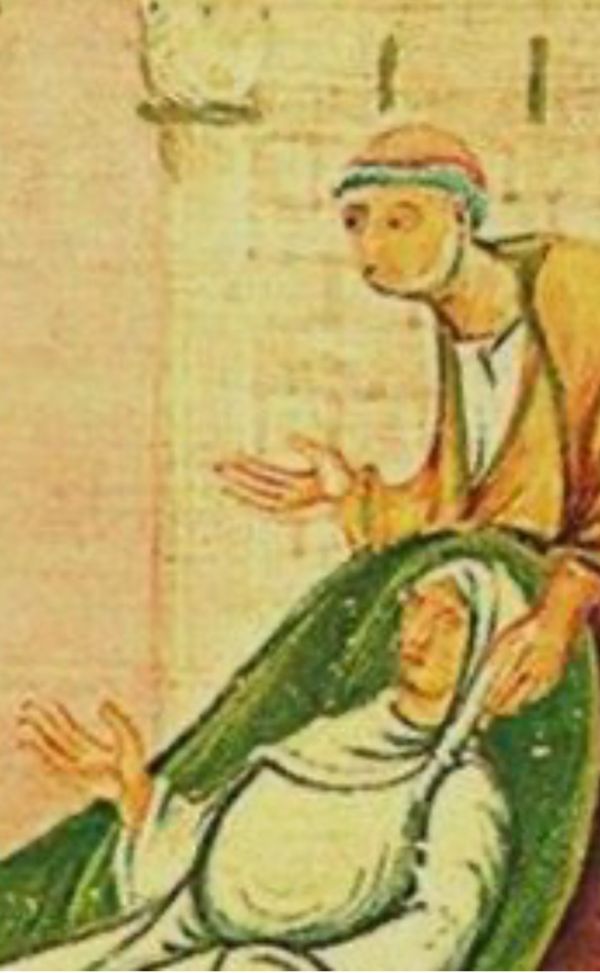Power of the Word
(Lk 4:38-44)
«To the other cities, too, I must proclaim the good news of the Kingdom of God, for I was sent for this» (Lk 4:43).
Leaving the place of worship, authentic disciples put themselves at the service of life, recovering people.
They want to put them back on their feet not out of almsgiving paternalism, but with dignity and respecting their inclinations; thus they become eager to transmit joy to others.
It’s the new experience that we are called to offer also to women and men of cultural backgrounds and mentality different from ours.
Peter’s mother-in-law is probably the emblem of a community coordinator - of the House of Peter [perhaps drawn from an ancient heritage of customs] - who, thanks to the decisive Meeting, experienced healing and full rebirth, even at the service of others.
In Semitic culture, at sunset and with the rise of the first star in the sky, a new day is born: here there is a new Creation.
Marginalised humanity is regenerated - first forced only to lower itself, inert - and resumes raising its head, and doing well.
All those considered impure, unworthy and inadequate, who didn’t know who to resort to and at the mercy of public benevolence, are now touched by God.
He doesn't stop in the face of the hopes of redemption of the weightlesses.
A touch, that of the Lord and of those in the Church (or outside) who brings it - that absorbs the supposed unworthiness and shortcomings.
A caress that makes feel welcomed and adequate, and reintegrates into social coexistence even people considered repellent.
In the course of a first approach to the Way in the Spirit it may happen that the Son of God [who resembles God] is confused with «the» Christ (v.41) expected: «that» Messiah that everyone knew; glorious avenger, who would bring victory, health, immediate opulence.
The leader who would skillfully put things right with peremptory acts of force - and subdued the peoples, suddenly guaranteeing to the elect lineage an easy golden age at the expense of others.
Not bad: it would be one to be held without doubt (v.42). In the Master, instead, insistence on the Proclamation task prevails, without which stereotyped ideas become fixed, humiliating the life.
God cares for everyone, even those who are far away and unrelated to the Home interests - He is not someone that we can be taken possession of.
Personally caring for the brothers is tiring; and constantly moving beyond the borders of one’s own partnership or environment, too.
But this reveals the wonderful presence of the Friend: situations are created, and everyone discovers unexpressed Pearls that recreate the existence of the world.
Instead, when we think and stop at the results at hand, and do not keep alive the sense of Evangelization, reality becomes swampy; the Spirit is not unleashe - we choose the limit, and everything is dragged into indolence.
One would be satisfied (flattering) with great normalized and confined gestures: lights, exaltations, reassuring formulas... but there would no longer be a new grain that could be born every day.
To internalize and live the message:
Do you feel eclipsed in the Announcement and in the itinerance, or vice versa enhanced?
What gives you strength and puts you back on your feet, or seduces, bewitches, and blocks you?
[Wednesday 22th wk. in O.T. September 4, 2024]












